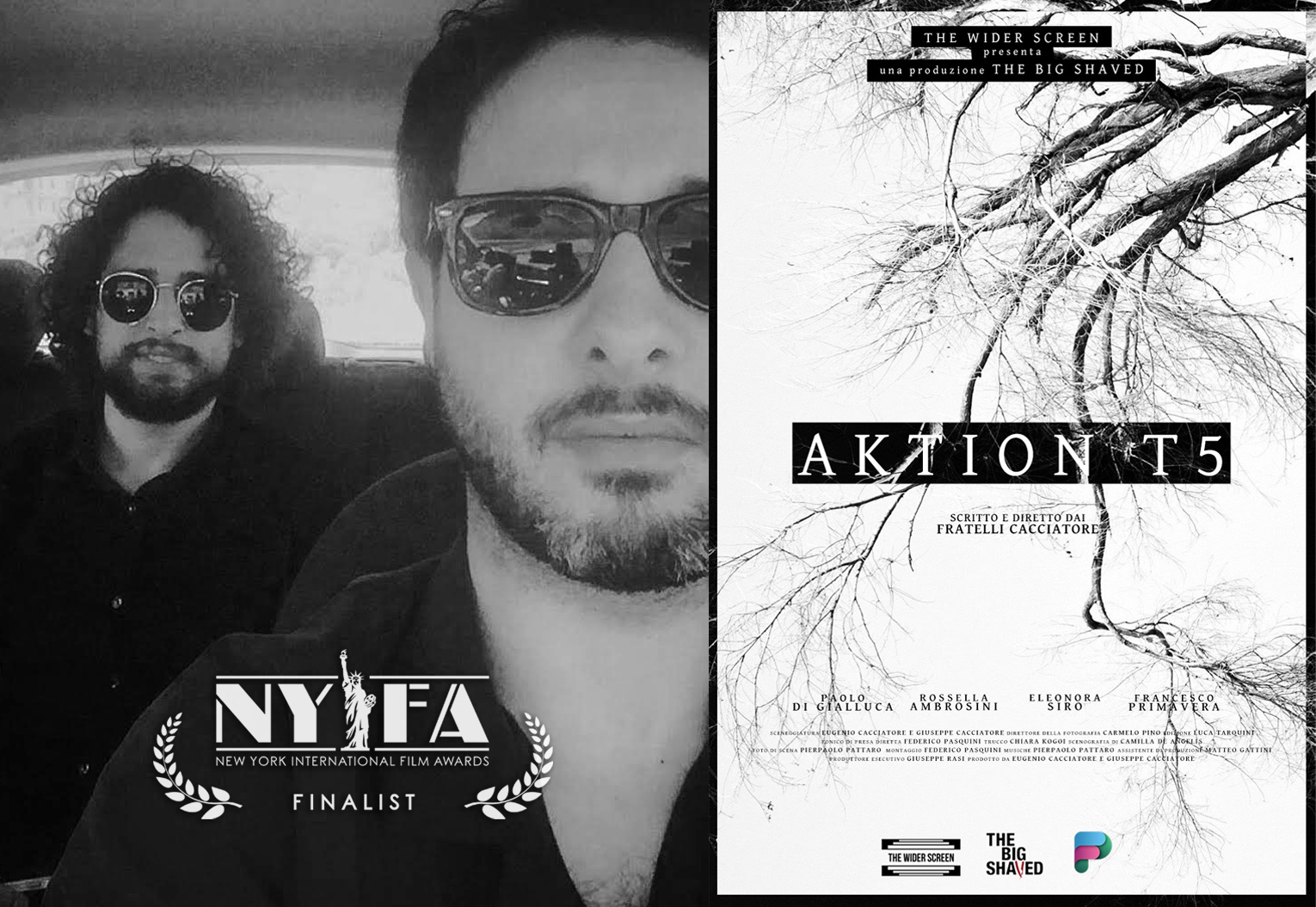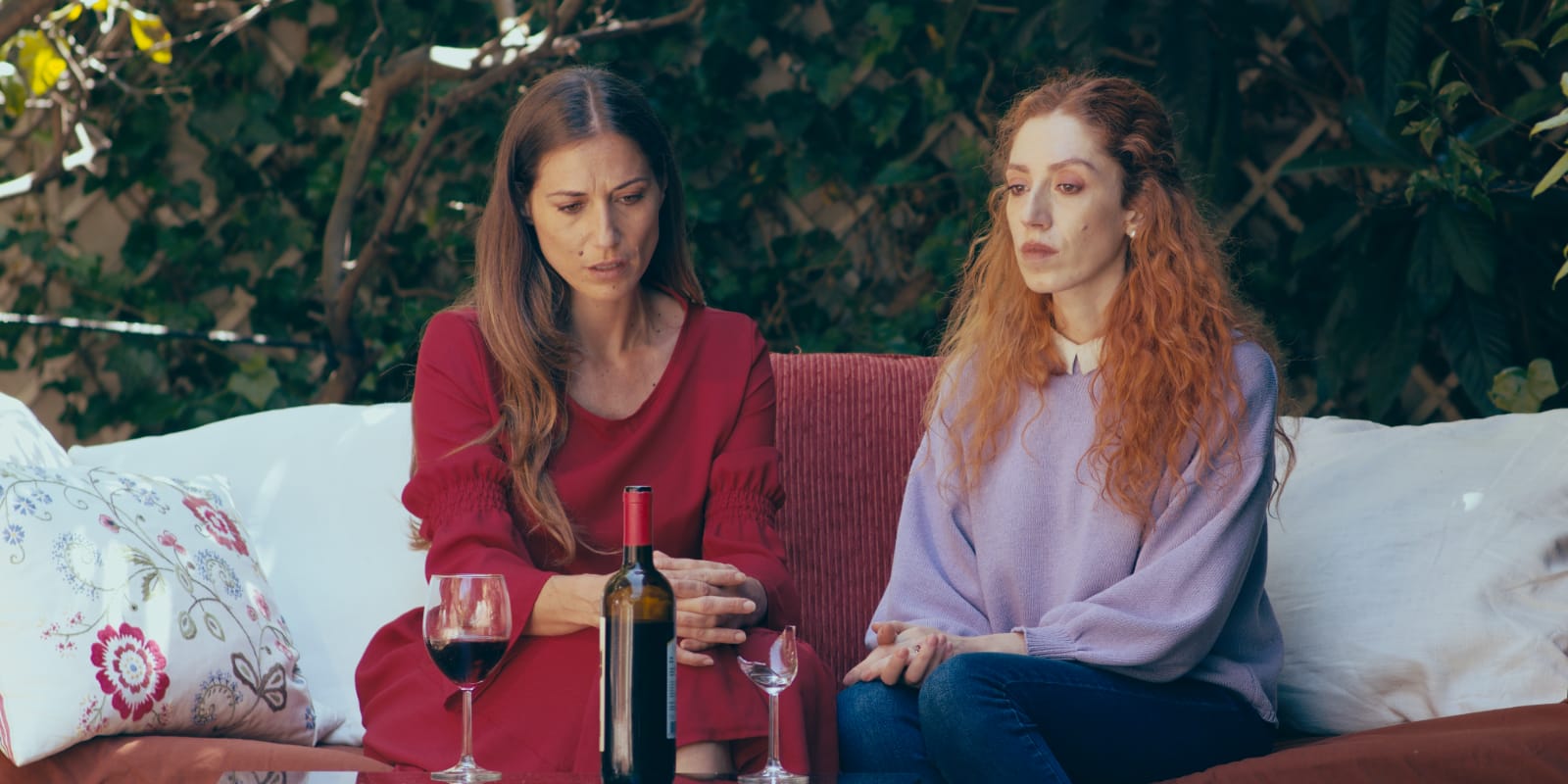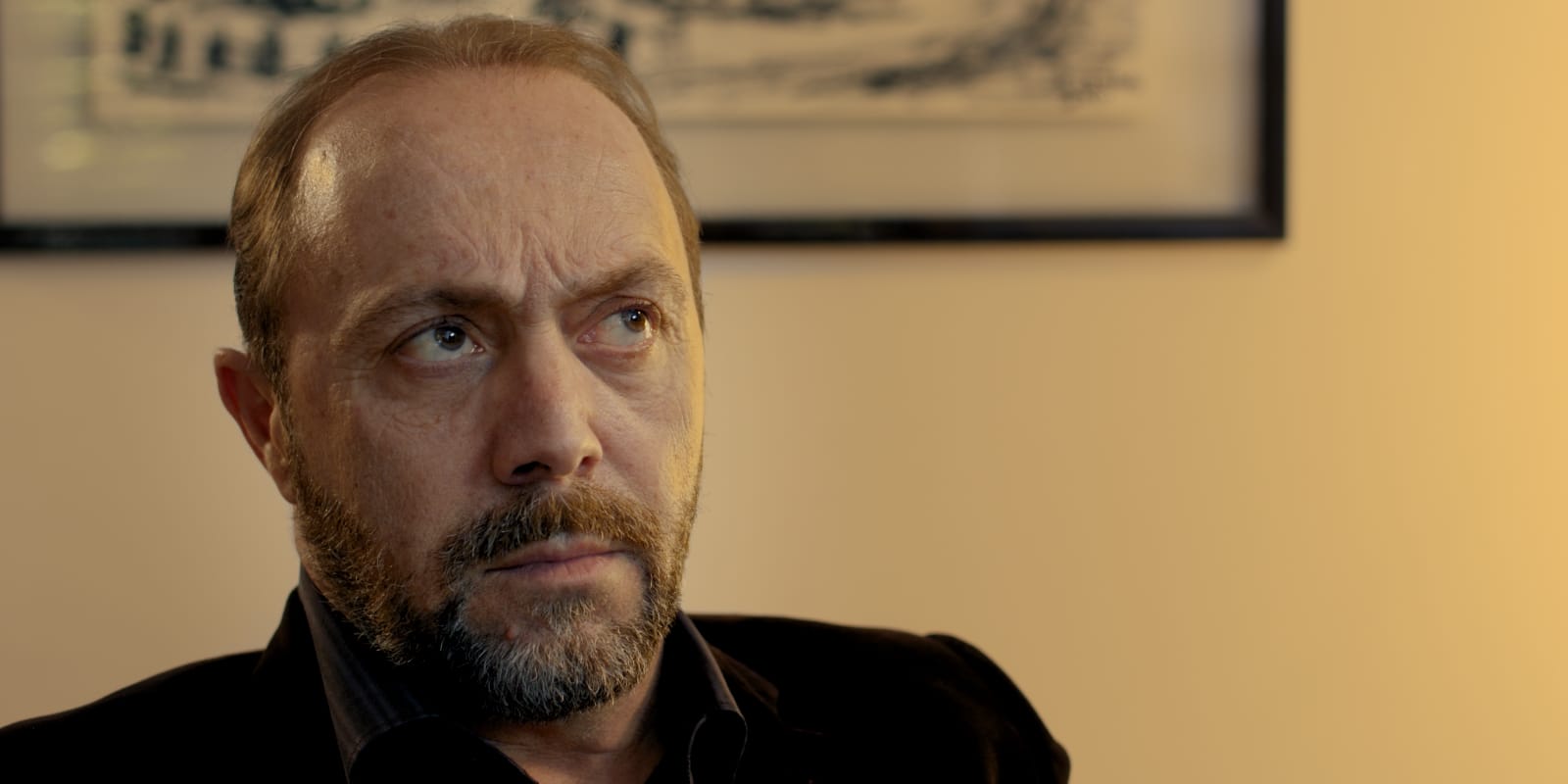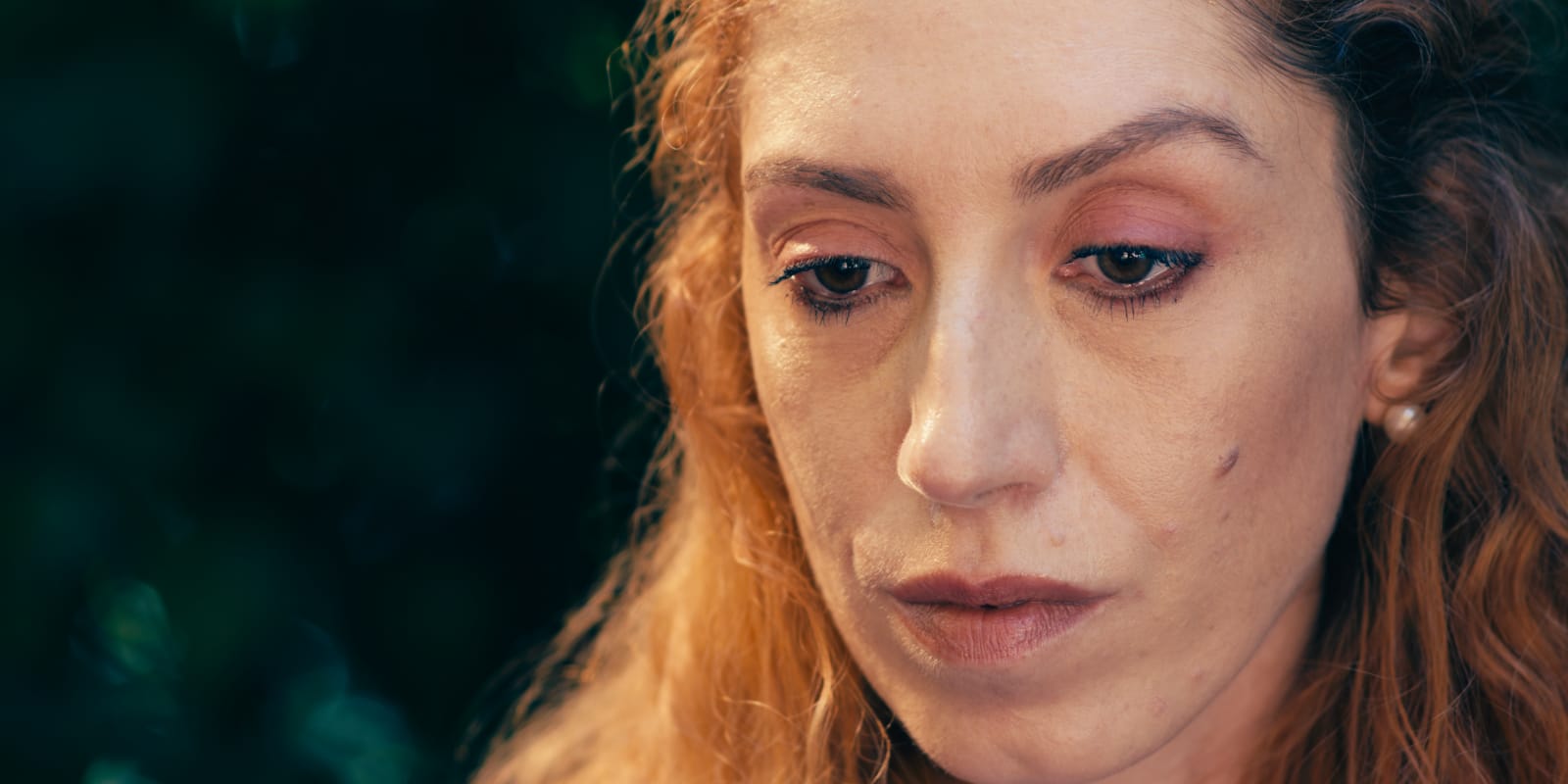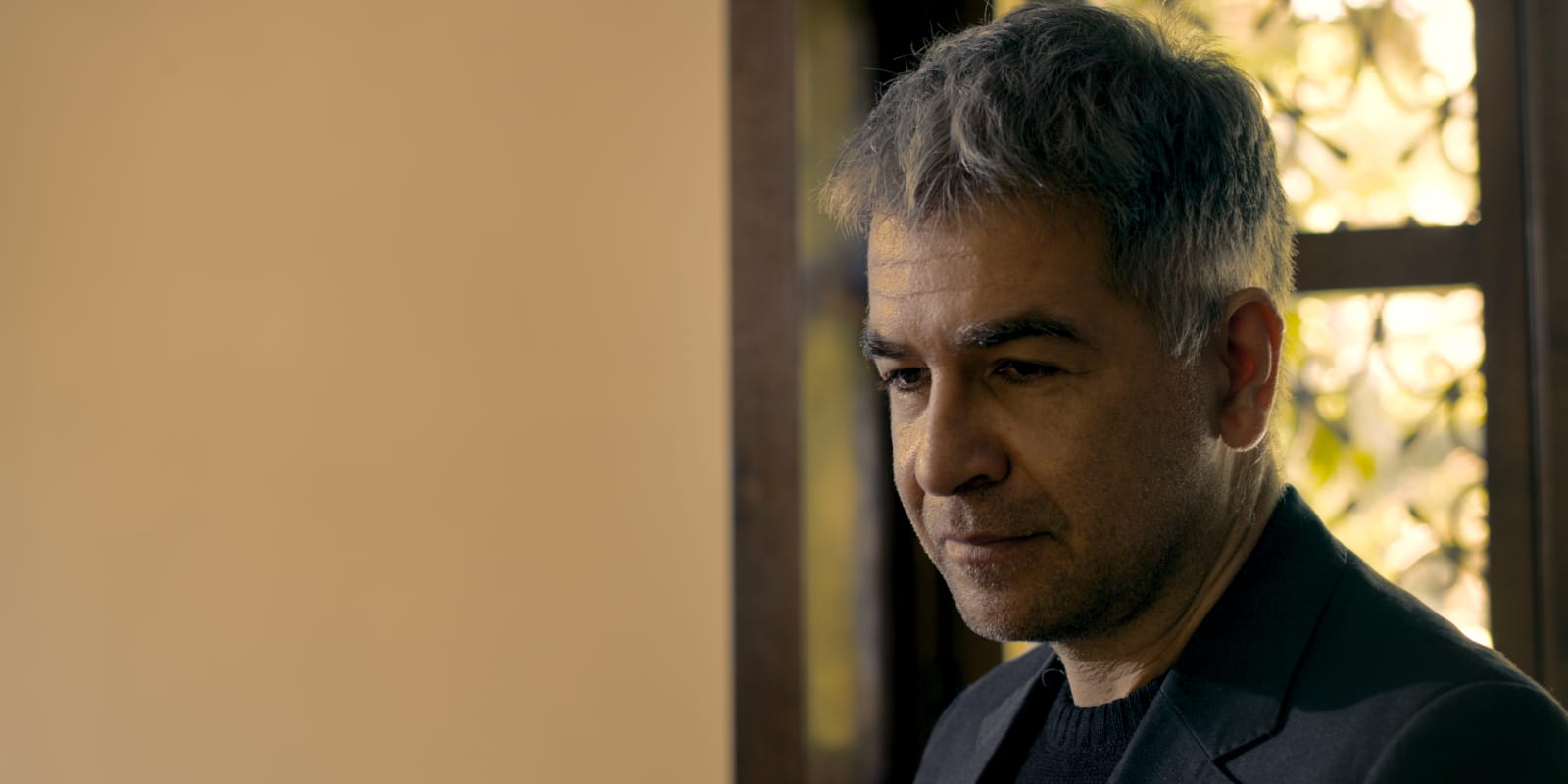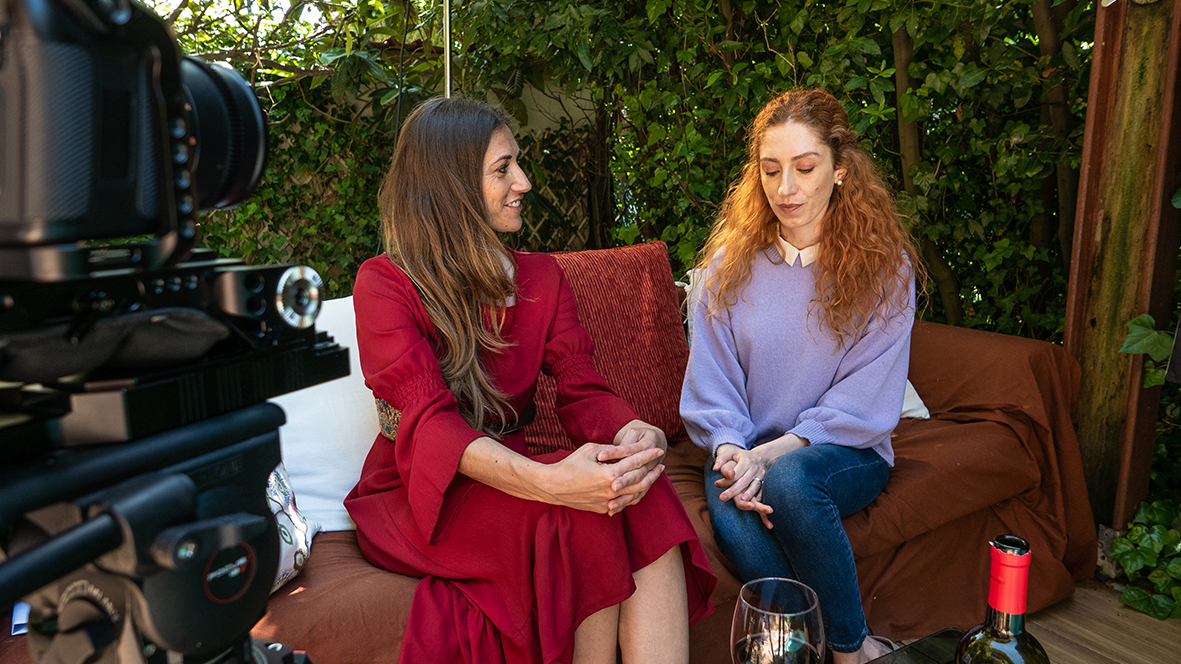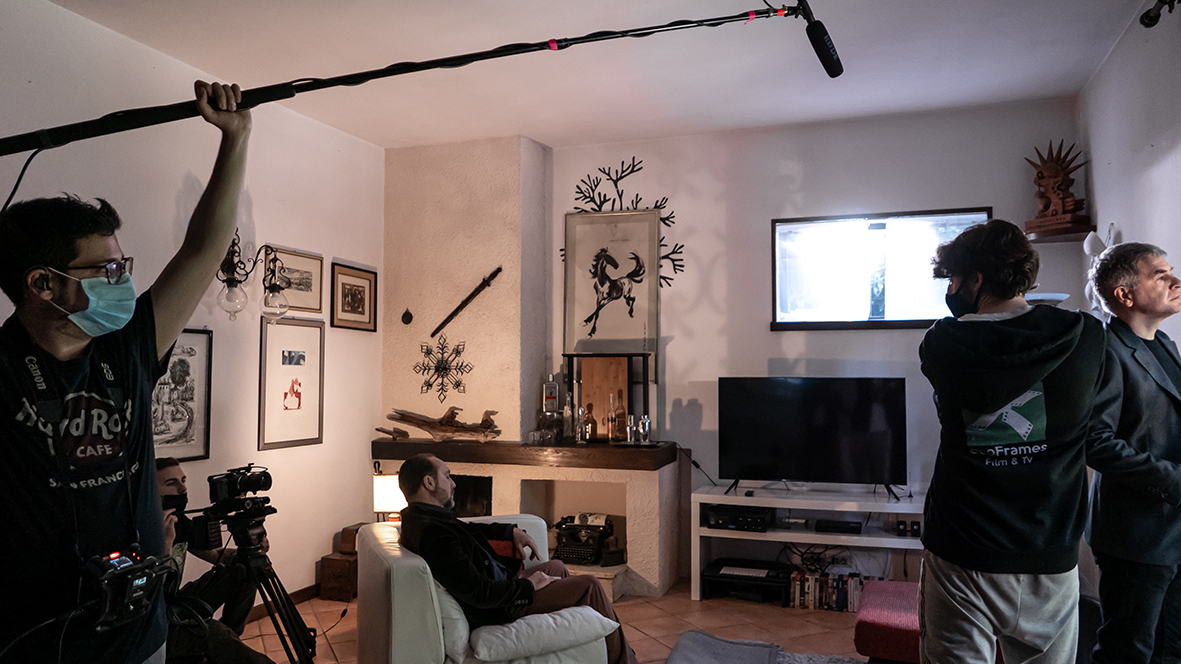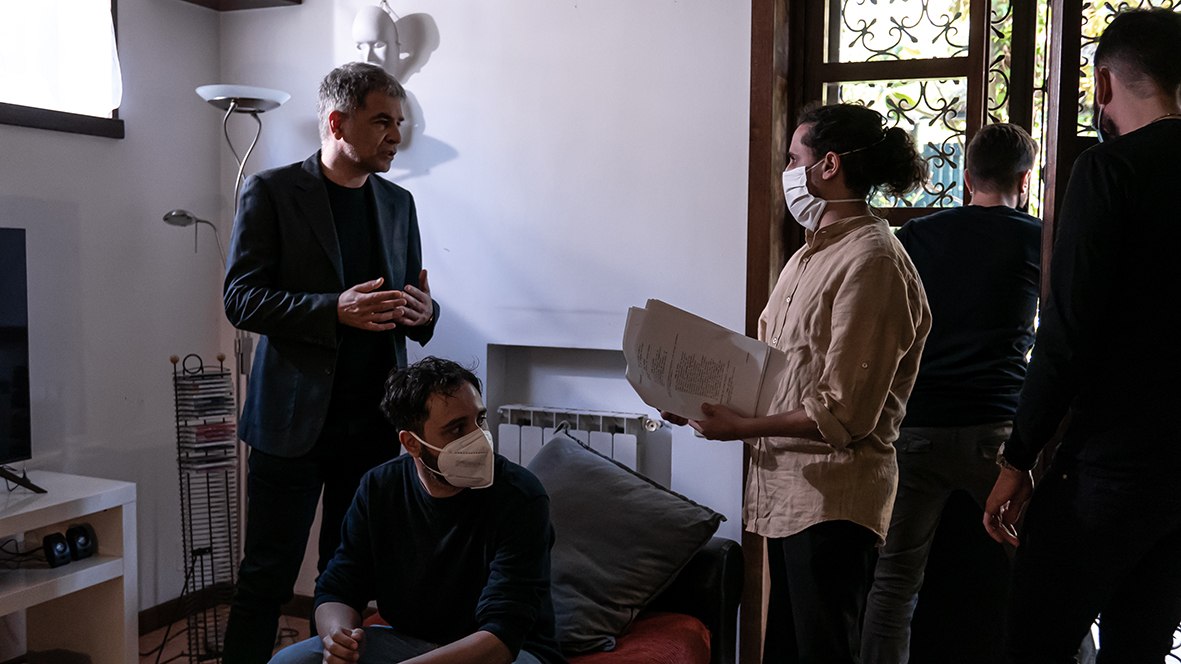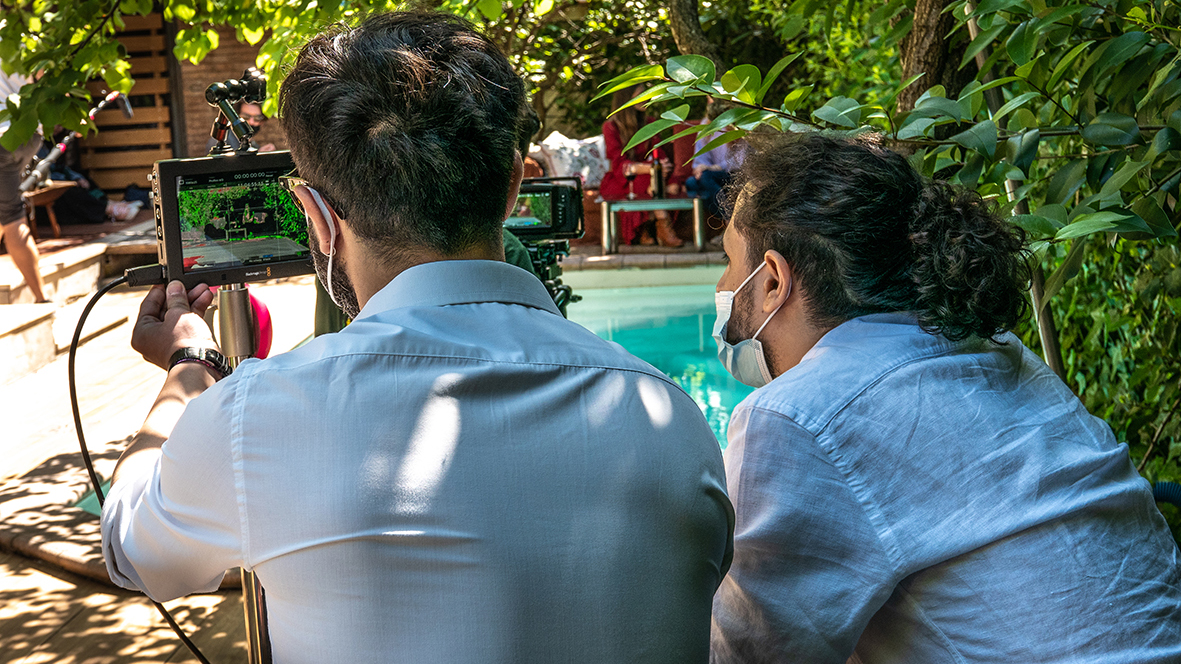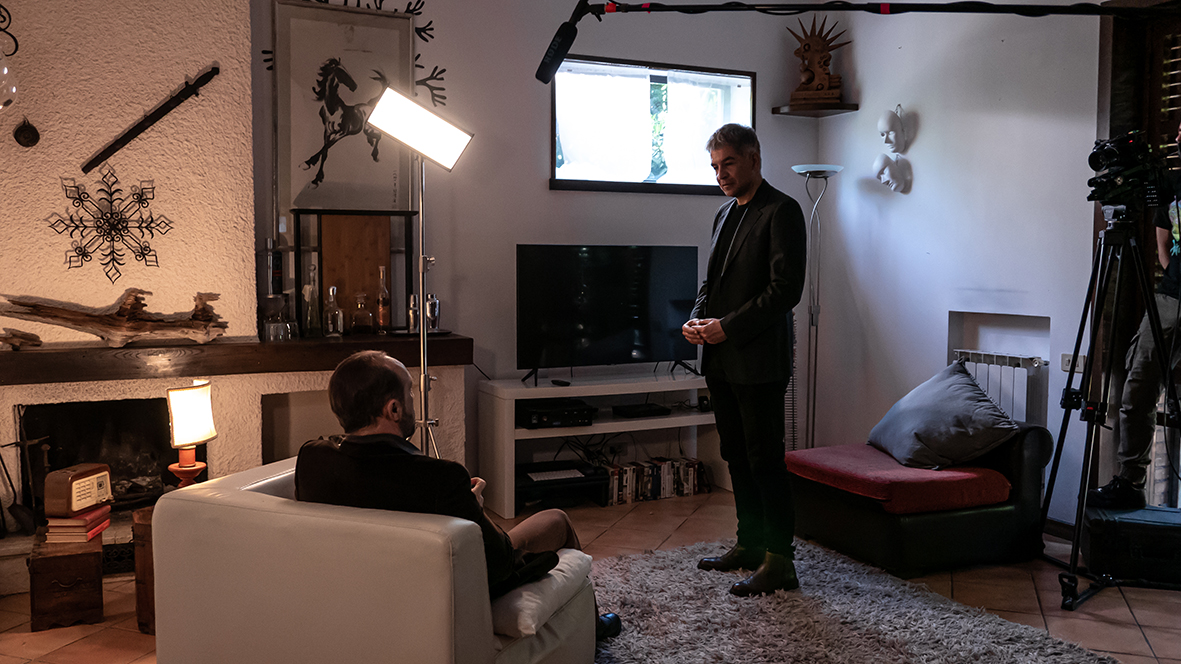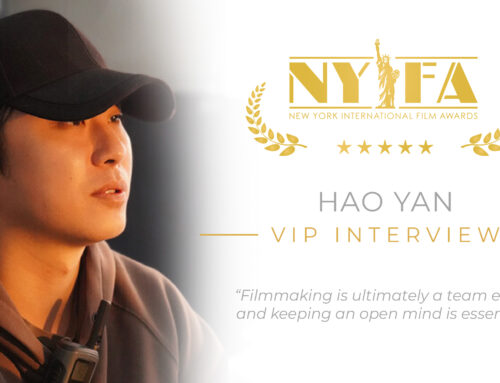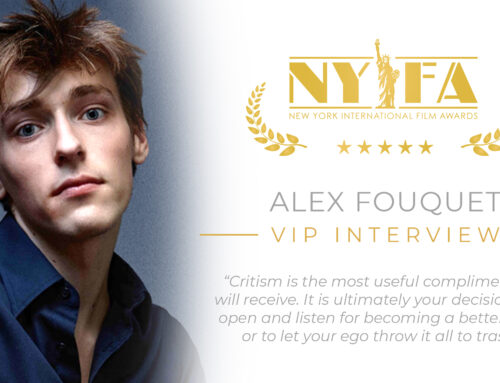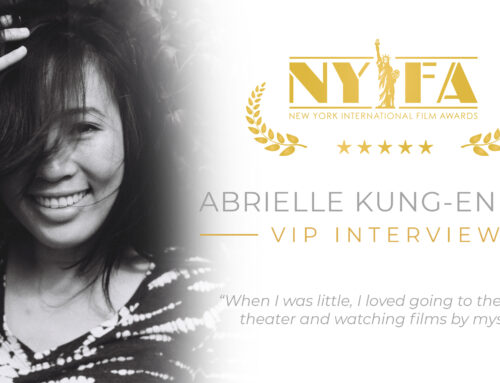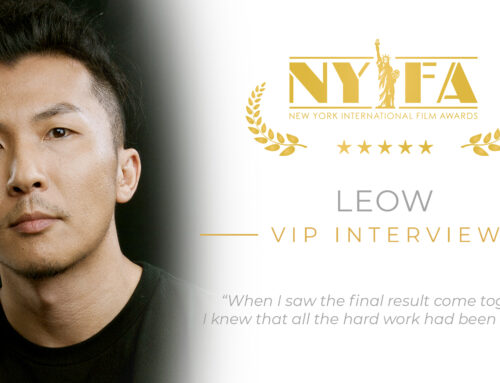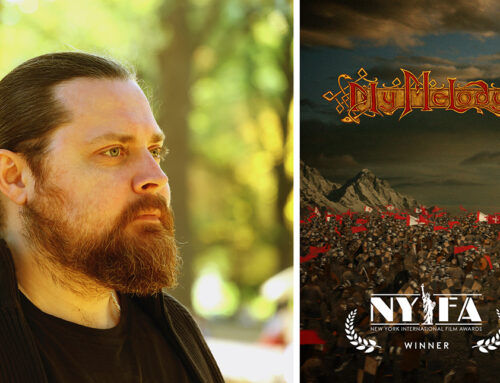VIP Interview with Eugenio and Giuseppe Cacciatore, directors of the Italian Short Film ‘Aktion T5’
You co-written and directed the film. How was this experience for the two of you?
It was very natural. Even in my previous works, “GIOCHI DI RUOLO” shooting as a short diploma after film school and “ANAFORA”, especially during the pandemic with amateur media, unofficially my brother has always been there. There has always been a direct line with him that made us closer, starting from the simple idea to the actual development of the story. For this latest work, which is the first really important for both of us, it felt right to officially sanction our collaboration and work together directly on the set. Of course, exchanges and differences of views have never been lacking, but we believe that this can be a strength. The important thing is to “get on” to the compromises.
Where does the inspiration of the movie come from and when did you write it?
The project was born at the end of last summer, when the second wave of Covid-19 arrived. In a moment of intolerance given by this situation, and also by some personal disappointments, we began to lay the foundations of this story, starting precisely from the malaise that the characters, men for one reason and women for others, nurtured and experienced. We have “taken everything to extremes” by inserting the past of the characters and their descendants.
The title is a clear reference to AKTION T4, that is the program used by the Nazis to eliminate, even before the Jews, all those people considered by them “unworthy to live”. We wanted to leave the clear reference to the meaning of the word, but by inserting 5 we wanted to express an evolution of that way of “thinking”, leading to a change of perspectives.
How did you choose your cast?
We saw the auditions of some actors and actresses, but as soon as we saw those ones of Paolo, Francesco, Eleonora and Rossella, we had no doubts and we were very happy and excited to be working with them. An excellent understanding was immediately created, both with Paolo and Francesco, and with Eleonora and Rossella. Seeing this team of professionals working and being that humble with us, made us feel very much honored. In the two months that preceded the days on the set, we spent many hours with the cast in video calls talking about the characters and discussing them together.
Unfortunately, due to the Covid-19 and the distance, we could only physically get to know each other on set, however we found those video-chat fundamental, because since the very first moment we met, we created a good atmosphere among us all, and we were able to analyze the characters and the story.
There are a lot of dualities in the film. The duality of two directors, the duality of two brothers (the leads), the duality of the two women talking etc. What is the meaning behind this choice?
Duality is a fundamental characteristic of life and existence. It is present both in nature and in humans. Our brain is also divided into two hemispheres: the left-male and the right-female. In all of us there is always the eternal conflict between rational and irrational that try to meet. In the short, men are the rational part, perhaps even too much: they try to reconcile their present and their uncomfortable descent with a gesture that will sanction the closing of the circle; the women in turn represent the irrational part, that is, they are probably completely unaware of the genie of their companions and therefore cannot find an explanation for certain decisions of theirs that have directly influenced their lives as well. They accepted, even with some difficulty, these lives without ever really digging to the bottom. This duality is also present between me and my brother: as such, ours is a visceral bond made of great affection and strong mutual complicity and support; but it is often also made up of resentment, competition, rivalry.
The Cacciatore brothers Eugenio & Giuseppe directors of ‘Aktion T5’
According to the script, the actions of our predecessors and ancestors keep daunting the next generations. Is there an end of this circle?
It depends. Of course, it is undeniable that the past influences the present and that we are partly the result of the actions of our descendants. Each individual is a quote from their own lineage. So we don’t think there can be a definitive closing of the circle because it is an issue that will never have an end.
There is specific moment in the film we particularly enjoyed. At the end of first scene a sound of a glass breaking distracts the actor and carries us into the next scene that takes place in a different space. What did you want to communicate to the audience? Is this a metaphor of something breaking in the relationship between the two characters?
It is one of the scenes we also like very much. The noise of broken glass, in addition to being an excellent expedient to change the setting, without ruining the tension and the one that we tried to make the viewer perceive with the character of Francesco Primavera who listens seated and attentively to the words of his brother, is certainly to indicate the life and serenity of their companions, in particular of the tormented character played by Rosella Ambrosini. A woman on her birthday who, instead of celebrating, is gripped by remorse and regret for a desire that she will no longer be able to fulfill. Here those broken glass are exactly his state of mind.
What was the most challenging scene to shoot?
There were a couple of scenes that required a lot of takes. One concerned the actresses who, however, during the editing phase we unfortunately had to cut to make the scenes smoother; the other concerned the long shot of the bike running in the middle of the road. It was difficult to shoot, mainly for reasons related to weather and light: we wanted to shoot it almost at sunset and for this reason, capturing the right moment and moment was not easy.
Can you tell us more about the Wider Screen Company?
The Wider Screen is a company founded in 2016 that deals with the production and distribution of audiovisual products. It is divided into various departments. Among these is the section “The big shaved”, a collective that deals with producing films, documentaries, short films, video clips. Its founder is Giuseppe Rasi, who immediately believed in the project and gave us a great help with his “the big shaved” to produce it. Once the work was completed, we decided to continue together with the distribution path, always carried out by him and his the wider screen.
Who are the directors that inspire you the most?
The passion for cinema “unites” my brother and me, but we have very different tastes; just to mentions a few names, we love Dario Argento, Bava, Raimi, Abel Ferrara, Haneke, Lynch, Danny Boyle, P.T.Anderson, Aronofsky. Of course, I prefer someone else more as well as my brother.
What are your thoughts on the future of Italian cinema?
The future of Italian cinema is very bright in our opinion: there are courageous authors, even very young ones, who with great foresight, perseverance and skill, are leading to a rebirth of our cinema with courageous films, which we never thought we could see in Italy. An example is Gabriele Mainetti, Matteo Rovere or the D’Innocenzo brothers, who with their works are giving new life to our cinema with projects that break away from the extreme conservatism and the total lack of pop ideas that have characterized our industry. cinema of recent years.
If you could choose one line, from any movie in the history of cinema, that represents you the most what would that be?
Difficult question. There are films that are certainly part of our life and that for one reason or another are irreplaceable. But as with everything, they are linked to certain moments of our life and therefore, even if they always remain immortal, our preferences can vary according to the moments, situations, ages. For these reasons we do not put one film in the foreground over another, all are fundamental. And to stay on the subject with the short, the character played by Paolo DiGialluca says a sentence that in our opinion best embodies these considerations, namely: “We cannot transform our idiosyncrasies and our personal tastes into absolute principles”.
It seems that in the movie women are relegated to the role of mothers and their discussion focus on motherhood and their relationship to men, while men discuss philosophy, science, genetic etc. Why this choice?
In our opinion it is not correct to make this differentiation between the characters. They were not designed according to parameters. Women are not relegated to the role of mother alone, but what lies behind it is interesting, that is, two women who, despite the choices of their companions, not completely shared, have gone on their way and alongside them, proving to be beyond that strong even very altruistic, while men, certainly talk about something else, but everything refers to them and to what concerns them two, proving selfish individuals. This is the real difference between men and women in the short in our opinion.
What’s next for you guys?
First of all, we hope the short will be appreciated as we believe in our ability to share emotions through it. For the future, something is brewing, we certainly are looking forward to sharing other stories that we are already working on it.

